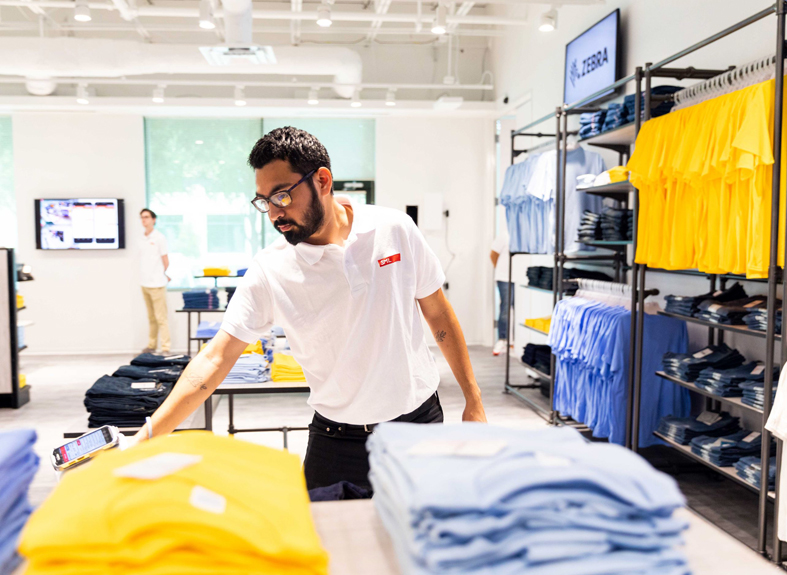SML item-level RFID hits 5000 stores
- July 7, 2021
- Steve Rogerson

Texas retail technology firm SML RFID says its Microsoft Azure-based Clarity item-level RFID software has been deployed in more than 5000 stores in 34 countries, with around 60,000 users of its RFID handheld application.
During last year’s pandemic, SML deployed its software in over 1000 stores and managed more than 1.5 billion unique RFID tags, processing over 25 billion RFID events. In addition, it says retailers using Clarity have improved their in-store inventory accuracy from less than 70% to more than 95%, which has added over $1bn in profit while simultaneously reducing over $1bn in inventory over the past six years.
“This is another huge accomplishment for our team and a testament to the collaboration and innovation that they have built with our ecosystem partners as well as our customers, transforming the most fundamental element of retail, inventory management,” said Dean Frew, chief technology officer at SML Group.
The Covid-19 pandemic caused global industries to struggle, but few industries were impacted as heavily as retail. In what became a case of adapting to survive, many retailers leveraged new technologies to streamline in-store processes, improve customer experiences and create efficient and cost-effective implementations.
Many selected Clarity, SML RFID’s proprietary RFID item-level inventory management system deployed on Microsoft’s Azure cloud platform, to provide faster, easier, more accurate inventory and innovative inventory processes to help them improve financial performance.
SML says there are an additional 3000 stores under contract and it will deploy its software to all of these stores by the end of 2022. With just these existing and planned projects, SML estimates that over three billion unique RFID tags will be under management annually on Clarity by the end of 2022.
Clarity is being used by retailers of all sizes from 100 stores to those with thousands of stores. These retailers are serving several retail segments today, including apparel, footwear, home goods, sporting goods, cosmetics and electronics. Further, SML is working with fast-food outlets, food supply chains, pharmaceuticals and agriculture.
In addition to stores, the organisation is also processing millions of items annually through its Clarity supply chain applications in customer factories and distribution centres.
An additional benefit of using item-level RFID and the resultant increased inventory efficiency is that retailers can have a large impact on sustainability goals in their supply chains. One SML user has taken 400 shipping containers – equating to 22 million items – out of demand per year while still increasing sales.
“When you look deeper into the adoption of Clarity within retailers, what you see is that retailers are increasingly recognising that they can’t thrive with the once-a-year SKU based physical counts of the past and are converting to item-level RFID to transform and realise the tangible business benefits that follow,” said Frew. “These retailers see that poor inventory accuracy is a fundamental problem that prevents them from effectively delivering the customer service required for retailing today and in the future. Our focus is to provide retailers with world class technology and service to help them with this item-level transformation, contributing to our customers’ further prosperity.”




